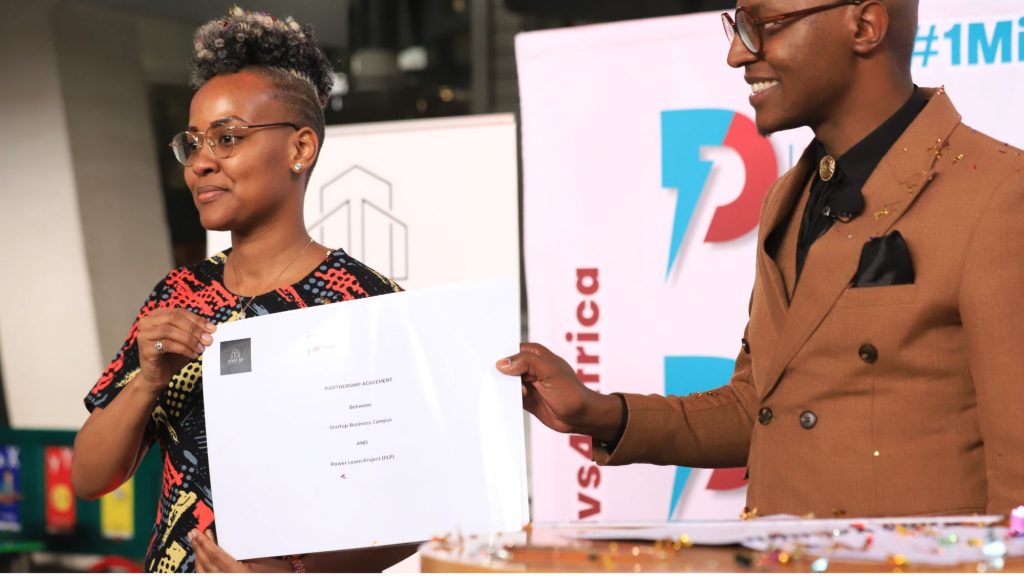We all have them. Those apps we open without thinking. Not because we need anything in particular, but because they feel… safe, in some…
New project to train 1 million software developers in Africa

In a bid to train one million software developers across Africa by 2027, Power Learn Project (PLP), Adanian Labs SA and the ICRD Group’s start-up business campus has launched a new programme at the Sci-Bono Discovery Centre.
Known as #1MillionDevs4Africa, the programme is an initiative to unlock South Africa’s potential for the Fourth Industrial Revolution. In accordance with President Cyril Ramaphosa’s commitment to a “skills revolution”, organisers want to build a large talent pool that are ready to build local solutions that scale globally, support the local and global tech industries, provide employment for young people, and solve pertinent local challenges.
“In the 21st century knowledge-based economic system, the wealth of our nations will not be based on what is found beneath the ground, but what is found between the ears,” says Lucky Litelu, the founder and chief executive of Startup Business Campus and head of partnerships, incubation and investments.
“Startup Business Campus is super excited to partner up with PLP on this exciting high-impact capacity building initiative; that seeks to unlock Africa’s digital economy and create pathways to sustainable prosperity for young people on the continent.”
Launched in 2022 in Kenya, PLP is a Pan-African impact organisation with a vision of driving transformative change for the youth in Africa by empowering them with relevant technology capacity through the provision of quality, affordable and decentralised tech training.
The transfer of skills, skills development, and technological capacity have been flagged as critical to developing solutions for unemployment and underemployment in South Africa, and Africa as a whole. #1MillionDevs4Africa is PLP’s flagship programme.
Mumbi Ndung’u, chief growth and operations officer for PLP, says: “Our goal is to drive transformative change for the youth of Africa through technology skilling. The programme will offer online junior software development training, consisting of curated programming languages as well as a soft skills component in employability, entrepreneurship, and their mental well-being with our health partner AfyaRekod in order to enable the learners to not only acquire entry level smart technology jobs but to also be wholesome members of the community.
“Through support from partners, the course will be covered on full scholarships, so the learners’ only concern is to learn and absorb as much as they can, as they prepare to navigate the digital revolution with us.”
PLP aims to kickstart software careers with entry level, fully funded training using free data access and a self-paced learning management over a period of 16 weeks. The course ranges from programming languages such as Python and Dart Programming with Flutter to blockchain 101, databases, data science, and entrepreneurial skills. The learners will then have opportunities for hands-on practical experience through a proof of work module.
Learners will earn a certificate upon successful completion of the course and join a community of young skilled Africans ready to take on the digital opportunities. They will also be equipped with life skills such as financial literacy, health and well-being via AfyaRekod, who will provide them access to their mental health data and support when in need.
“Upon completion of the course, learners will have access to a number of opportunities and alternative educational pathways through the organisation, ranging from internships and proof of work opportunities or venture studio and incubator connections if they want to explore entrepreneurship,” states Ndung’u.
In the pilot phase of the South African programme, PLP aims to train 10 00 software developers in South Africa over a period of four months. Over the next few months PLP is looking to launch four more pilot countries: Zambia, Nigeria, Ghana, Uganda & Rwanda, with West and North Africa, envisioned for phase 2 of the programme. The scholarship program is officially accepting applications as of 1 September 2022.
“We are all working towards the Pan-African dream of building relevant capacity to extract value from the fourth industrial revolution. We invite our partners and especially our learners from across Africa, to join us on this journey of transformation,” says John Kamara, chairman of the Power Learn Project board.
ALSO READ: Cross-sector collab can unlock financial inclusion in SA

